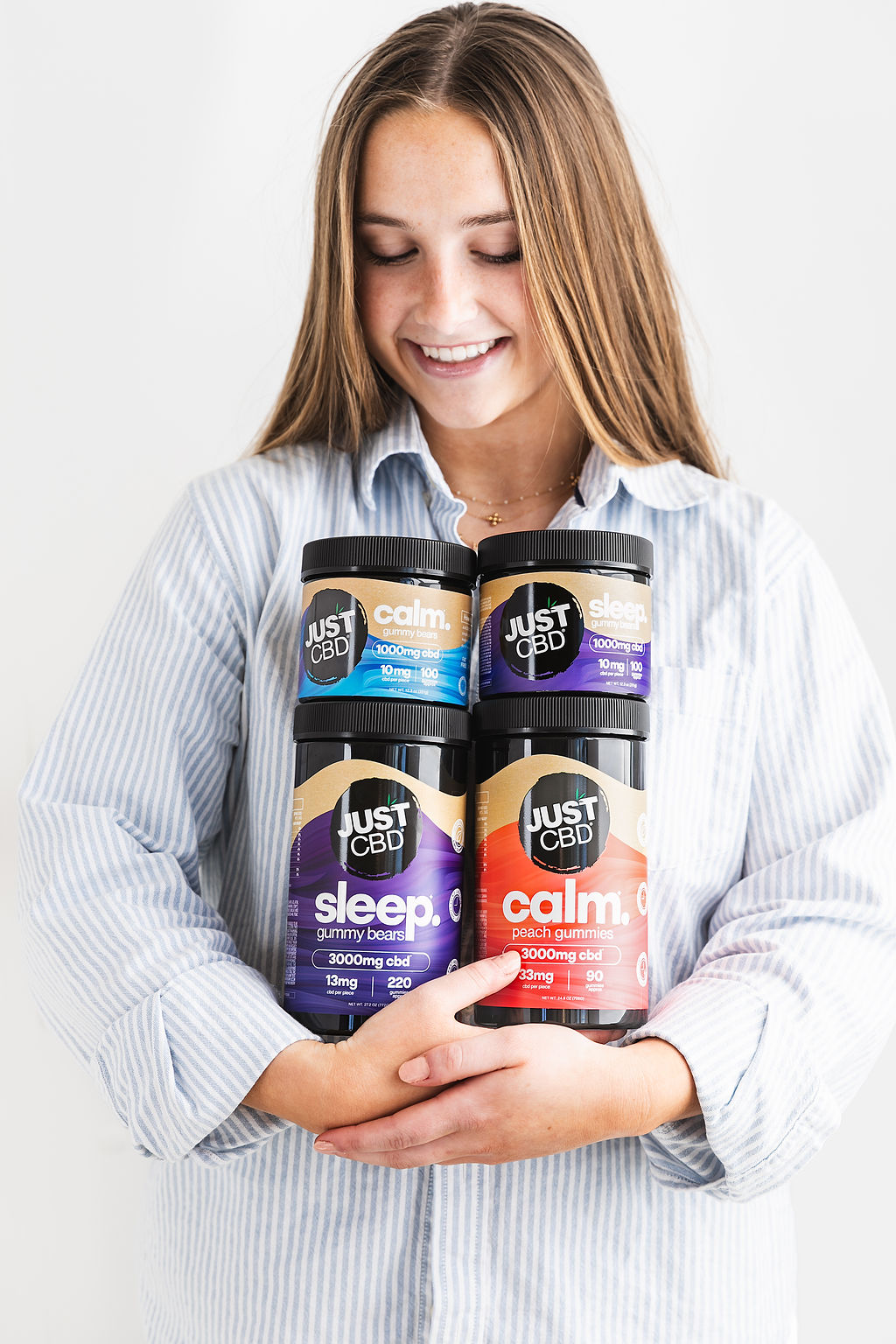CBD Absorption and Bioavailability
Understanding how well your body absorbs CBD is crucial when comparing different consumption methods. CBD absorption, or bioavailability, refers to the percentage of CBD that actually enters your bloodstream and reaches its target areas. Different methods of CBD delivery, such as vaping, edibles, tinctures, and topicals, have varying levels of bioavailability due to factors like metabolism and digestive processes.

Inhalation vs. Other Methods
Understanding how well your body absorbs CBD is crucial when comparing different consumption methods. CBD absorption, or bioavailability, refers to the percentage of CBD that actually enters your bloodstream and reaches its target areas. Different methods of CBD delivery, such as vaping, edibles, tinctures, and topicals, have varying levels of bioavailability due to factors like metabolism and digestive processes.
Inhalation via vaping offers generally higher bioavailability compared to other methods.
- When CBD is inhaled, it bypasses the liver’s first-pass metabolism, allowing a larger portion to enter the bloodstream directly.
- This means that vaping can lead to faster and potentially more potent effects than consuming CBD through edibles or tinctures.

However, other methods like edibles and tinctures have slower absorption rates but may provide longer-lasting effects due to the sustained release of CBD into the bloodstream.
Factors Affecting Bioavailability
Factors influencing CBD bioavailability include route of administration, chemical composition of the product, individual metabolism, and even food consumption.
- Route of Administration: As mentioned previously, inhalation through vaping offers higher bioavailability compared to ingestion methods like edibles or tinctures because it bypasses first-pass metabolism.
- Chemical Composition: Different CBD formulations contain varying concentrations of CBD and additional ingredients that can affect absorption. For example, the presence of fats or oils in a tincture can improve absorption through the digestive system.
- Individual Metabolism: Each person’s body processes CBD differently due to variations in enzymes involved in metabolism. This can lead to differences in bioavailability even when consuming the same dose of CBD.
- Food Consumption: Consuming CBD with food can slow down absorption, as it needs to pass through the digestive process.
Onset of Effects
The speed and intensity of CBD’s effects, known as onset of effects, vary depending on the method of consumption. Inhalation methods like vaping tend to provide a faster onset due to direct absorption into the bloodstream, bypassing the digestive system. Methods involving ingestion, such as edibles or tinctures, lead to slower onset times as CBD is metabolized by the liver before entering circulation.
Vaporization for Rapid Delivery
Vaporization allows for rapid delivery of CBD, leading to a faster onset of effects compared to other methods like edibles or tinctures. When CBD is vaporized, it bypasses the digestive system and enters the bloodstream directly through the lungs. This direct absorption results in quicker access to the target areas, producing a more immediate response.
Comparison to Edibles, Tinctures, Topicals
Vaporizing CBD offers the quickest onset of effects because it allows for rapid delivery into the bloodstream. Edibles, on the other hand, have a slower onset due to the need for digestion and metabolism before CBD enters circulation. Tinctures, while absorbed through the digestive system, generally have a faster onset than edibles as they are taken sublingually (under the tongue), allowing for absorption through mucous membranes.
Topicals, applied directly to the skin, do not enter the bloodstream and their effects are localized to the area of application. They work by interacting with receptors in the skin and surrounding tissues, providing relief from pain, inflammation, or other skin conditions.
Dosage Control and Customization
Dosage control and customization are essential aspects of optimizing CBD therapy. Understanding how your body absorbs CBD (bioavailability) is crucial for determining the appropriate dosage and method of consumption to achieve desired effects.

Precise Dosing with Vape Pens
Dosage control and customization are paramount in maximizing the benefits of CBD therapy.
Vape pens offer precise dosing capabilities, allowing users to adjust their intake based on individual needs. The ability to control the amount of vapor inhaled enables customization for specific effects or desired levels of relief.
For those new to CBD, starting with a lower dose and gradually increasing it allows for gradual adjustment and finding the optimal dosage for personal response.
Challenges with Dosage Accuracy in Other Forms
Dosage control and customization are crucial in maximizing the benefits of CBD therapy. Precise dosing allows individuals to tailor their intake based on individual needs and desired effects.
While many forms of CBD offer some degree of dosage control, vape pens stand out due to their inherent precision. Users can directly control the amount of vapor inhaled, enabling them to adjust their intake in real-time. This level of customization allows for fine-tuning of dosage based on individual responses and desired effects.
Other forms of CBD, like edibles, tinctures, or topicals, often have less precise dosing options. Edibles may come in pre-determined doses, but variations in metabolism and digestive processes can impact absorption and the perceived effect. Tinctures often rely on droppers, which can be difficult to measure accurately for consistent dosing. Topicals are typically applied topically and their dosage is based on area of application rather than a precise volume.
Challenges with achieving accurate dosage in these alternative forms arise from various factors. Edibles may vary in absorption rates depending on individual metabolism and the presence of fats or oils in the product. Tinctures, while offering some control through droppers, can be challenging to dose precisely due to variations in droplet size and volume. Topicals rely on topical application and dosage is often based on area coverage rather than a specific volume.
Potential Side Effects and Risks
While CBD offers numerous potential benefits, it’s essential to be aware of possible side effects and risks associated with its use. These can vary depending on factors like dosage, individual sensitivity, and the method of consumption. Some common side effects reported include dry mouth, drowsiness, diarrhea, and changes in appetite. In rare cases, CBD may interact with certain medications or exacerbate existing health conditions. It’s always advisable to consult with a healthcare professional before using CBD, especially if you have any underlying medical conditions or are taking medications.
Respiratory Considerations for Vaping CBD
Potential side effects of vaping CBD can include irritation of the lungs and airways, similar to those experienced with smoking tobacco products. While CBD itself is generally considered safe, inhaling any substance can pose risks to respiratory health.
Propylene glycol (PG) and vegetable glycerin (VG), commonly used as carrier agents in e-liquids, can irritate the lungs for some individuals. It’s essential to choose high-quality CBD vape products from reputable manufacturers that use food-grade ingredients.
If you experience any adverse respiratory effects while vaping CBD, discontinue use immediately and consult a healthcare professional.
Safety Concerns with Other Delivery Methods
Potential side effects of vaping CBD include irritation of the lungs and airways, similar to those experienced with smoking tobacco products. While CBD itself is generally considered safe, inhaling any substance can pose risks to respiratory health. Propylene glycol (PG) and vegetable glycerin (VG), commonly used as carrier agents in e-liquids, can irritate the lungs for some individuals. It’s essential to choose high-quality CBD vape products from reputable manufacturers that use food-grade ingredients. If you experience any adverse respiratory effects while vaping CBD, discontinue use immediately and consult a healthcare professional.
Safety concerns exist with other delivery methods as well. Edibles may have inconsistent absorption rates due to variations in individual metabolism and the presence of fats or oils in the product. Tinctures can be challenging to dose precisely due to variations in droplet size and volume. Topicals, while generally safe for topical application, may cause skin irritation or allergic reactions in some individuals.
Legal Status and Regulations
Understanding how well your body absorbs CBD is crucial when comparing different consumption methods. CBD absorption, or bioavailability, refers to the percentage of CBD that actually enters your bloodstream and reaches its target areas. Different methods of CBD delivery, such as vaping, edibles, tinctures, and topicals, have varying levels of bioavailability due to factors like metabolism and digestive processes.
Varying Legal Landscape for CBD Vaping
The legal status of CBD vaping varies greatly depending on location. In some countries or states, it is completely legal, while in others, it may be restricted or even banned.
The primary factor influencing legal status is the source of the CBD.
CBD derived from hemp, which contains less than 0.3% THC (the psychoactive compound found in marijuana), is generally legal in many places under the 2018 Farm Bill in the United States. However, CBD derived from marijuana, which typically has higher THC levels, remains illegal at the federal level in the U.S.
Even within countries or states where hemp-derived CBD is legal, there may be specific regulations regarding vaping products. Some places might restrict the sale or marketing of CBD vape pens, require age verification for purchase, or limit the amount of CBD allowed in a single product.
It’s essential to research and understand the specific laws and regulations surrounding CBD vaping in your jurisdiction to ensure compliance and avoid legal issues.
Comparison to Legality of Other CBD Products
The legal status of CBD vape pens is complex and varies significantly depending on location. Hemp-derived CBD products containing less than 0.3% THC are generally legal in many places under the 2018 Farm Bill in the United States, but marijuana-derived CBD remains illegal at the federal level.
Regulations regarding CBD vaping can differ even within jurisdictions where hemp-derived CBD is legal. Some areas may restrict the sale or marketing of CBD vape pens, require age verification for purchase, or impose limits on the amount of CBD allowed in a product.
It’s crucial to research and understand the specific laws and regulations regarding CBD vaping in your region to ensure compliance.
Order CBD vape pens for enhanced wellness
- How Often Lip Filler Top Up - August 27, 2025
- How Nasolabial Fold Fillers Work To Smooth And Soften Facial Lines In London - August 26, 2025
- How Marionette Lines Fillers Target Deep Wrinkles Around The Mouth In Kingston Upon Thames - August 23, 2025
